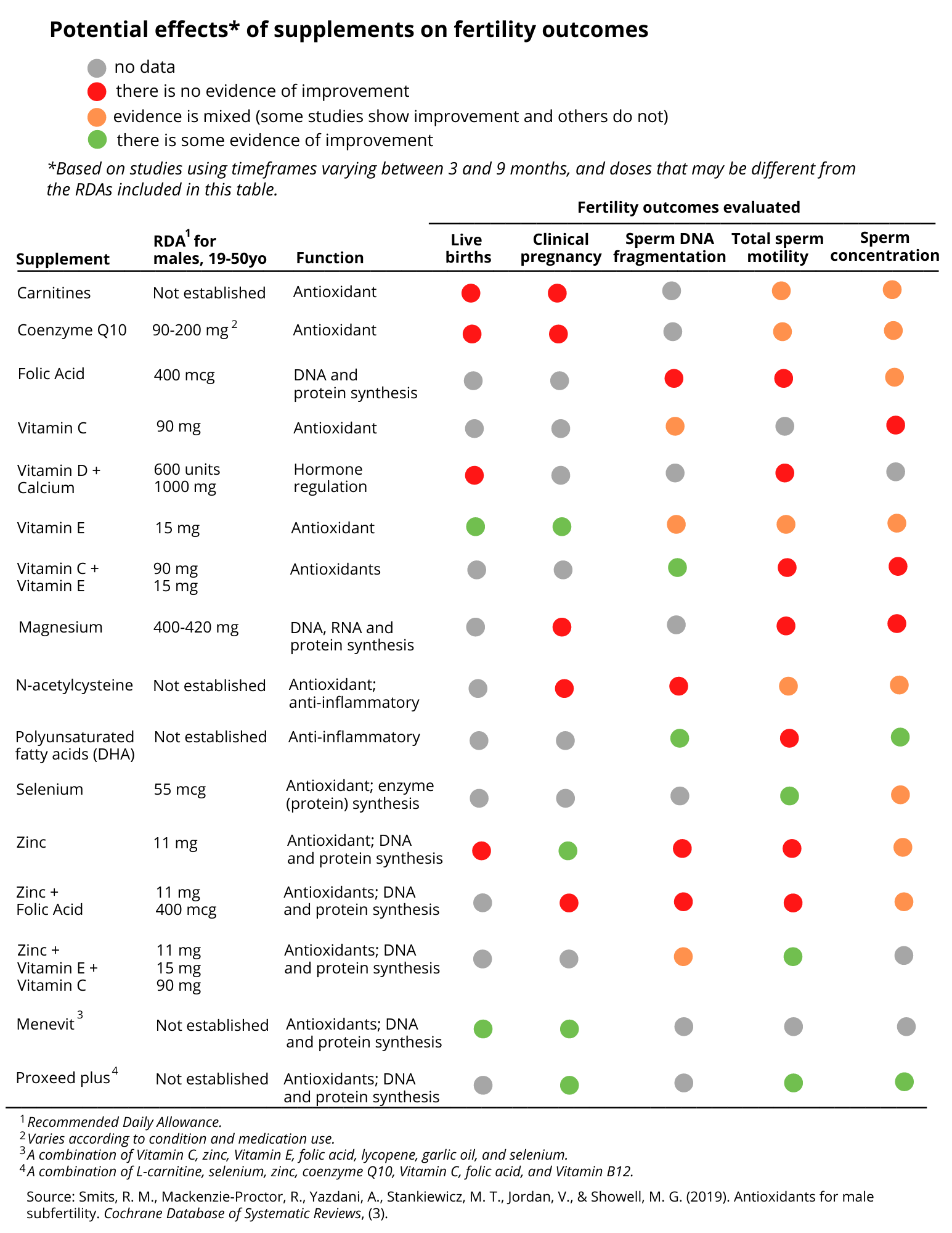There are many supplements that claim to improve male fertility. However, supplements are not subject to the rigorous regulations required for prescription and over-the-counter medications. Supplements are regulated by Health Canada under the Natural Health Products Regulations, to determine whether the supplement is being properly manufactured before being put on the market. Marketing strategies for supplements targeted to men and women with infertility can be misleading and often suggest that taking a supplement will result in a pregnancy. However, there is no conclusive scientific evidence behind the effectiveness of supplements. When the Center for Science in the Public Interest contacted 27 manufacturers of supplements to provide scientific evidence that their products help women get pregnant, not one company could do so.
Vitamins, minerals and other micro and macro nutrients found in supplements perform a host of functions in the body such as helping regulate hormones, fight infection and inflammation. They are also involved in essential cellular processes such as DNA, RNA and protein synthesis. Many supplements contain antioxidants. Antioxidants help fight free radicals, which are unstable and highly reactive chemicals that can damage DNA, proteins, carbohydrates and lipids. Free radicals are formed by uncontrolled oxidation. Though oxidation is a natural process, it can be accelerated by lifestyle factors like stress, smoking and drinking. As we age, the oxidation process also increases. We can help our body fight the damage caused by oxidation by eating foods that contain antioxidants. If you think that you might not be getting enough of a particular antioxidant in your diet, you might consider using supplements. Before taking supplements, it is important to talk to your physician. Supplements may not have the same effect as naturally occurring antioxidants found in your diet, and can cause a range of side effects such as nausea, diarrhea, abdominal cramps and vomiting, particularly if you take more than the recommended daily allowance. They may also interact with medications and cause adverse effects in people with certain health conditions.
The table below is a summary of the evidence for the potential effects of supplements on fertility, based on a systematic review of 61 studies. It is important to note that all of the studies included in the review were of “low” or “very low” quality, meaning that their findings should be interpreted with caution. Well-designed studies have not found that supplements improve fertility outcomes. For example, a recent randomized controlled trial published in the Journal of American Medical Association showed that folic acid and zinc do not improve semen quality nor number of live births in couples undergoing fertility treatment. More well-designed randomized controlled trials are necessary to determine the effects of supplements on fertility.
















